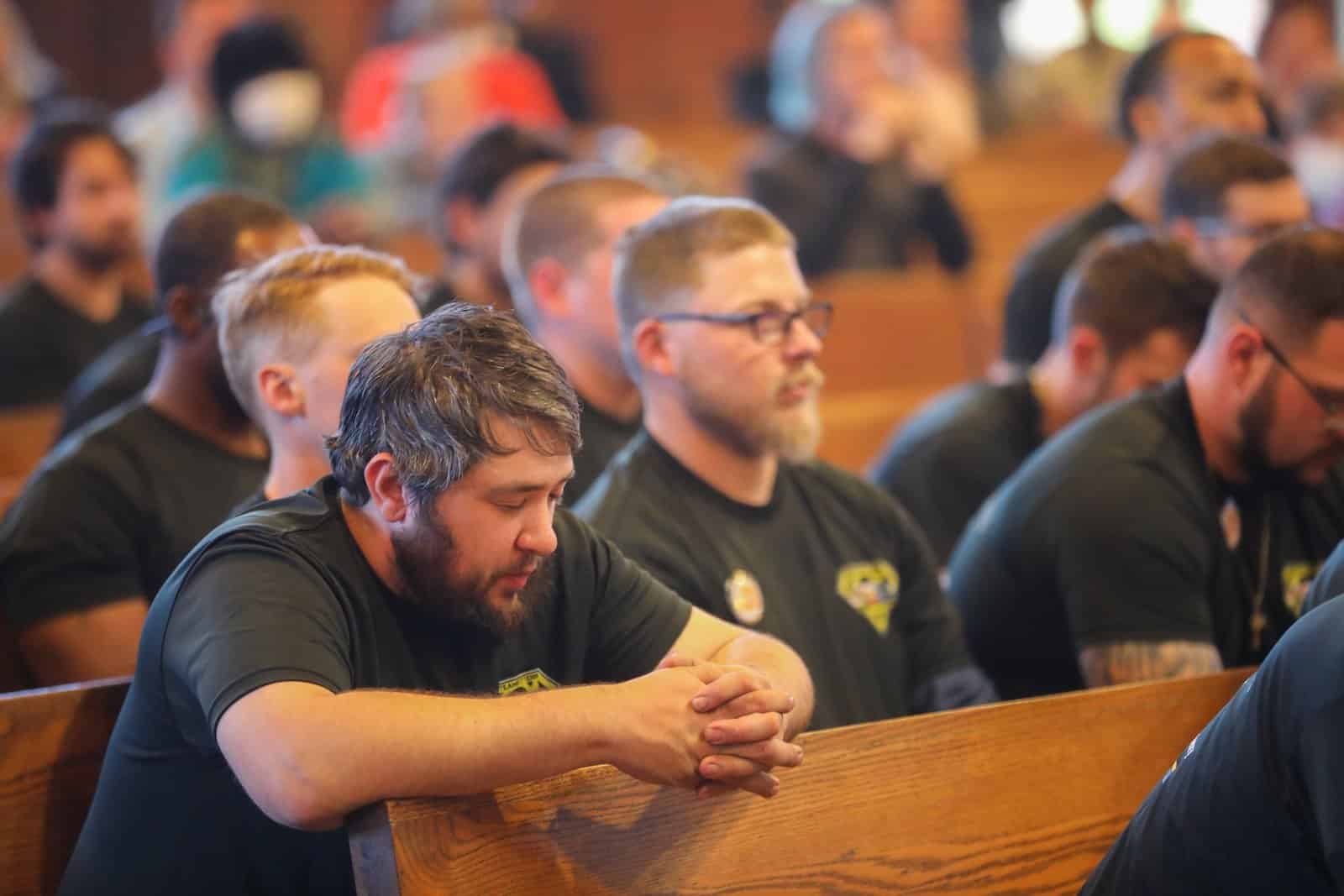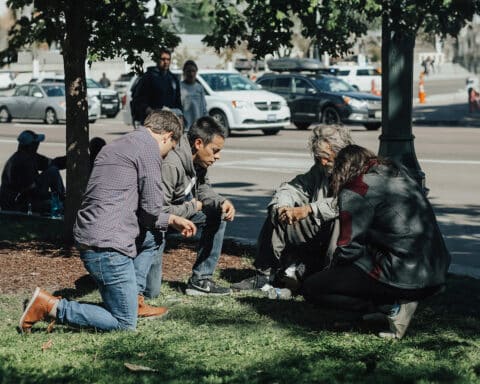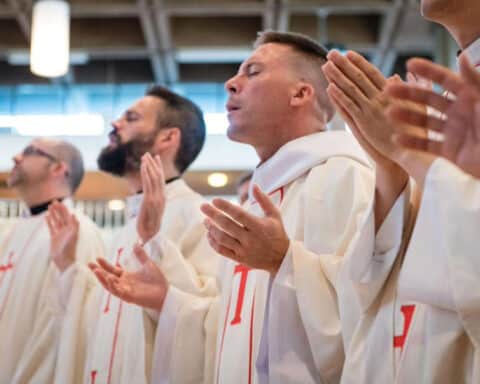We have a working-class problem in the Catholic Church today. Not a problem with the working class, per se, but a problem because they are absent. I quickly noticed this as a parish priest. The vast majority of weekly Massgoers at our parish had white-collar jobs. And this didn’t reflect the neighborhood, which had plenty of blue-collar families. And then I noticed it wasn’t just true of that parish, it was true of many parishes where I said Mass. In a world marked by shifting cultural values and evolving religious practices, one noticeable trend has emerged: a decline in attendance at Catholic Mass among working-class individuals.
Researcher Ryan Burge has noticed this trend, broadly. In a recent post at GraphsAboutReligion.com, he argues that religion has become a luxury good. Using the Cooperative Data Study, which includes 570,000 total responses over 15 years, Burge demonstrates that the less education a person has, the more likely he or she is to identify as a “none” or an atheist. According to this data, it is just not true that the more educated a person is, the more likely they are to disaffiliate.
In fact, Burge’s research reveals another striking conclusion: “The people who are the most likely to attend services this weekend are those with college degrees making $60K-$100K. In other words, middle-class professionals.” The problem, however, is that the Gospel is not just for the middle class. So what happened? Why have we lost the working class?
Missing a parish community
For generations, attending Sunday Mass was deeply ingrained in the cultural fabric of working-class neighborhoods. Churches served not only as religious centers but the centers of entire communities, where people sought friendship, support and a sense of belonging. The disintegration of the family and increasing mobility no doubt play a role in what we’re seeing. As people relocate for better job prospects or seek affordable housing outside of Catholic neighborhoods, the sense of community that once fostered religious devotion has weakened. With fewer neighbors and acquaintances attending Mass, the incentive to go diminishes for many.
Today, too often, our parishes are little more than location markers for Sunday Mass, suggesting that the most important and promising evangelical efforts will be those that labor to build a community that extends beyond Sunday worship. In the parish hall at the church where I first served as a priest, there’s a photo of a card party taking place. The room is filled. There must have been hundreds there. I think we need more of that — more bridge and euchre leagues in our local communities.
The need for respite
We have to consider, too, the way that the very nature of work has changed. This is a crucial factor behind the trend we’re seeing, since the evolving nature of work itself directly impacts people’s lives. In today’s fast-paced, demanding world, many working-class individuals find themselves caught in the whirlwind of long hours, multiple jobs and unpredictable schedules.
With Sundays becoming an increasingly rare respite from the demands of work, working-class families may prioritize family time or pursuing personal interests over attending Sunday Mass. With youth sports and other activities on the rise, Sundays have become an underutilized opportunity to break from the demands of work. Part of what we have to do is teach our culture to rest, and to rest well. Liturgy, properly understood and loved, is a crucial part of that rest.
Ultimately, the declining attendance of the working class at Catholic Mass reflects broader societal changes. Who isn’t present at Sunday Mass is a question we must dare to ask. And once we’ve recognized who isn’t there, we have to ask why they’re missing. By recognizing the unique struggles faced by the working class and actively engaging with them, the Catholic Church can pave the way for a revitalized sense of faith and community among those who have drifted away.





